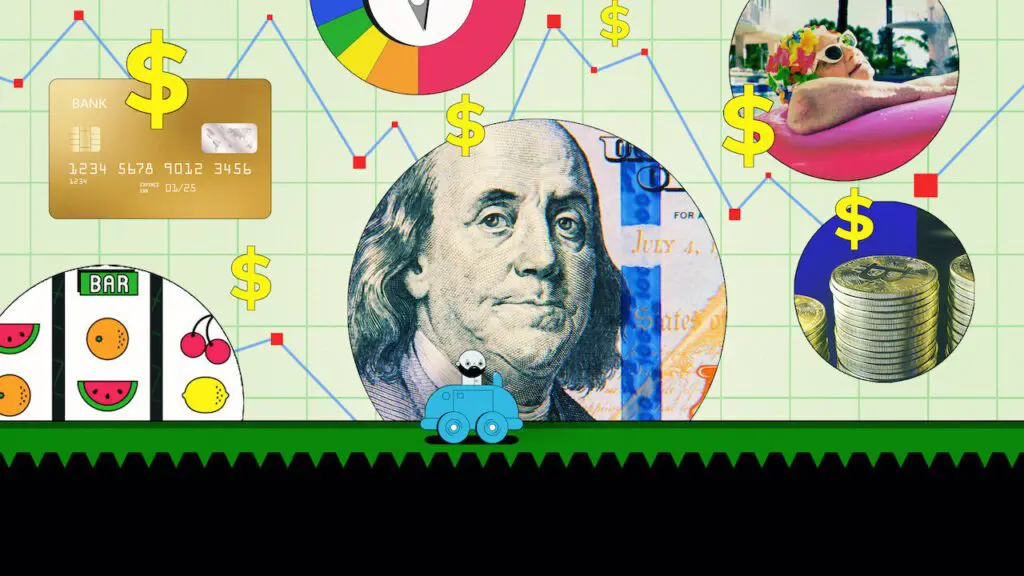Summary
Money, Explained is a hit or miss affair with some episodes (Credit Cards, Retirement) living up to the title and others presenting scattershot bits of information.
Netflix series Money, Explained Season 1 was released on the streaming service on May 11, 2021.
Someone once pointed out how curious it is that universities have one department for understanding the economic systems that govern our society and another for gaming those systems. Such is the vast amount of knowledge to be had that expertise does not guarantee financial success. And for the vast majority who have not had access to either school… good luck. Thankfully, for everyone, including those like myself — who took a single economics class in college and said, ‘no thank you,’ — Netflix has come to the rescue. Or so it would seem.
The latest offering from Vox Media’s “Explained” (essentially a YouTube series with higher production value) promises to delve straight into the mysteries of the dough. A rotating cast of celebrities (Tiffany Hadish and Bobby Cannavale are highlights) narrate through the bright graphics, archival footage, and talking heads (more accurately talking heads, torsos, and knees, as the interviews often feel like they were filmed within covid guidelines where they forgot to bring a zoom lens).
Unfortunately, for a show called Money, Explained, the series doesn’t do much to explain the intricacies of finance and economics. Those looking for insight into the complexities of fiscal or monetary policy, an understanding of difficult concepts such as currency, trade systems, wall street banking, or even home finances will be at a loss.
Instead of explaining the wider systems at work, the series is content to pick up a couple of topics that vary in relevance. However, some of the more pertinent episodes, such as the episode on credit cards, are more than up to the task; exploring the history and society surrounding them while providing concrete descriptions of the way banks rack up profits and articulating clear steps to prevent viewers from avoiding those common pitfalls that lead to crushing debt.
Other episodes are less cohesive. ‘Get Rich Quick’ barrels its way through a diverse assortment of things that could potentially be classified as “scams.” The list includes Ponzi schemes and pyramid schemes (distinguished from MLMs, which the show claims are good and legal; a dangerous oversimplification), but also infomercials, cryptocurrencies, fake cryptocurrencies(?), internet ads… you get the idea. The episode blazes through these bullet points, ending with some vague sentiment about “trust” and ignoring the genuine fact that many prominent companies (WeWork, for instance) employ identical tactics. Such omissions and simplifications are far too common, to the series’ detriment.
On the other end of the spectrum, Money, Explained’s final episode, ‘Retirement,’ casts light on the origins of the modern retirement systems, discussing the rise of pensions and 401ks in the process. But the episode starts with an indictment of young people, who experts worry that young people won’t have enough saved for retirement, and the moral of the episode is to start saving NOW. Never is it considered why young people aren’t saving (I can rattle off multiple reasons, such as decreased wages and employment benefits, and the lack of a foreseeable future due to climate change.)
This speaks to Money, Explained’s larger issue; the show does well when talking about these microelements but completely avoids talking about wider structural issues. No lip service is given to the economic systems that propagate all the problems discussed. It’s like someone describing the danger of smoke inhalation without mentioning that the house is on fire.
An episode on student debt gives a mere throwaway mention to the concept of debt cancellation. The gambling episode makes a neat connection between slot machines and RobinHood but neglects to note that the latter makes its money selling information to hedge funds. I could go on for hours, but my point is; the omissions are more fascinating and revealing of our financial system than most of the show’s actual content. Although it never falls into boring, Money, Explained is too afraid to say anything of substance that we end up feeling short-changed.



